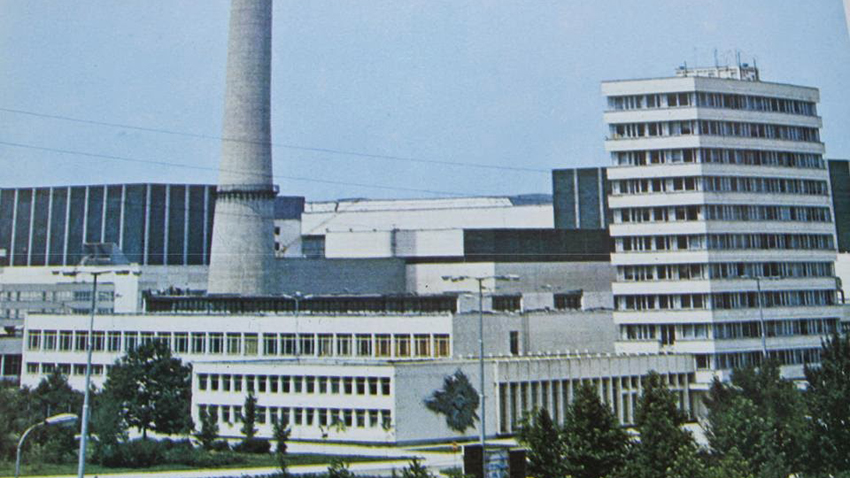1966 marks the launch of nuclear power in Bulgaria. In July an agreement was signed between Bulgaria and what was then the USSR on the construction of a nuclear power plant in this country. A plot of land 5 kms. east of the town of Kozloduy was selected for the facility; the construction project was drafted by Russian and Bulgarian engineers. The groundbreaking ceremony for the construction of the Kozloduy NPP took place on 14 October 1969. In the spring of the following year over 100,000 construction workers and installers from this country and from the Soviet Union began the construction of the power plant’s main body, which was to house the hall with the reactors, the control room, the ventilation centre and the electrical devices for the reactors.

The first reactor arrived from the Soviet Union in June 1972, in November that same year it was lowered into its shaft. There was work yet to be done before it could be commissioned and a contract to that end had to be signed. But it was this contract that was to become a bone of contention over which Bulgarian nuclear power plant experts, Bulgarian and Soviet foreign trade enterprises, cabinet ministers and deputy ministers clashed. Ultimately, the first nuclear reactor was commissioned two years later. The Kozloduy nuclear power plant was officially opened on 4 September, 1974.
Here is engineer Petar Popov, head of construction of the Kozloduy NPP talking about the most interesting aspects of his work:
“On 6 April 1970 I brought the first blueprint of the facility’s main body, the blueprint of its foundations. This is in fact the date when we started the construction of the main body and this work went on until 1974 when, on September 4 our work was done and we were ready for the commissioning of the nuclear power plant.”
The first stage in the construction of the Kozloduy NPP was completed a year later with the commissioning of the second reactor - in 1975.Over the nine years that followed, 1973-1982 two more reactors were installed – 3 and 4. In 1991 with the launch of the 6th reactor the nuclear power station was absolutely ready. Over the next twelve years it worked at full capacity and was the country’s biggest generator of electricity, providing jobs to many people from across the country but most of all to those in Northwestern Bulgaria. At the beginning of the 1990’s units 1,2,3 and 4 underwent major modernization.
Under the commitments Bulgaria assumed during the country’s EU accession negotiations, in 2007 the first four reactors of the nuclear power plant were decommissioned before the expiry of their life span.

More than one third of the electricity in Bulgaria is currently generated by two Soviet reactors – units 5 and 6 of the Kozloduy NPP; unit 5 has an exploitation license up till 2017, unit 6 – till 2021.
Sites for three more nuclear reactors at Kozloduy were envisaged from the very outset. In 2012 a company was set up to look into and assess the risks of an extension of the nuclear power plant. In 2014 the American Westinghouse concluded a shareholders’ agreement with the nuclear power plant for the construction of a new reactor, with the company guaranteeing the highest safety standards that meet all EU requirements and the lowest price of electric energy compared to any other source. The idea is to construct unit No. 7 using the cutting edge technology currently applied in the construction of nuclear reactors in USA and China. As there are issues still pending connected with this project public debate and discussions among politicians and experts continue.
English: Milena Daynova
Photos: socbg.comThe Other Bulgaria – these were the thousands of Bulgarians outcast abroad after the pro-Soviet coup d’etat on 9 September 1944. Scattered around the globe, they carried the image of their motherland, its controversial past, tragic present..
In a piece of correspondence, great Italian composer Giuseppe Verdi once wrote: „Do not try too hard to teach a singer how to sing. Provided he has got a devil on his back he knows how to sing.” These words perfectly suit Ghena..
„I had mostly poor marks in Bulgarian language and literature. I got them because I could not possibly write an introduction, a body copy and a conclusion in an essay. I begin as I like and wind up the story as I like.” This is what..

+359 2 9336 661
